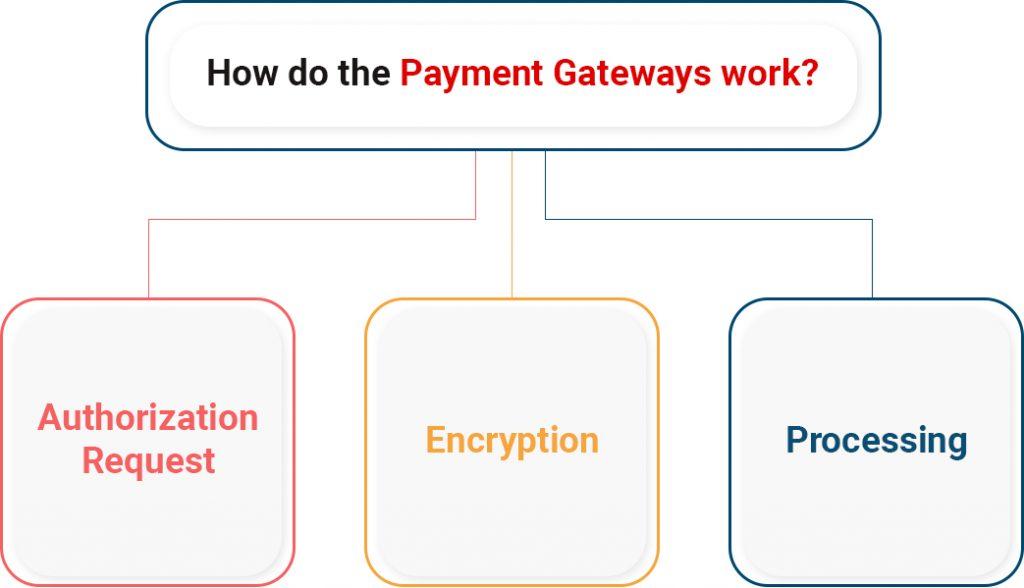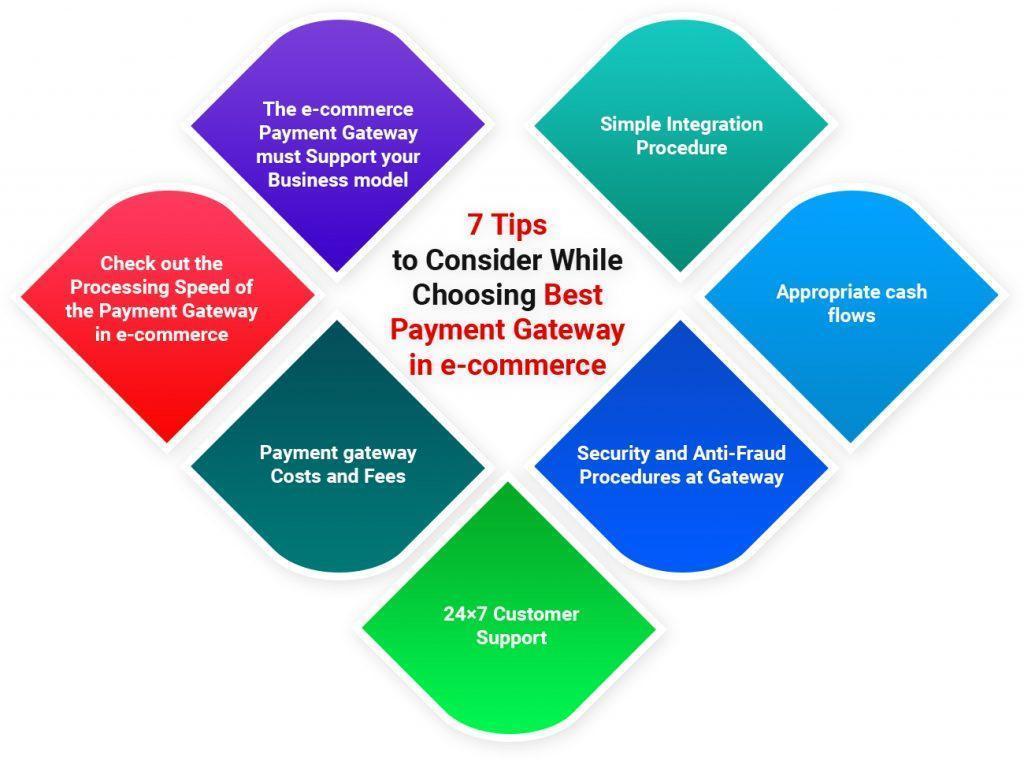One of the crucial aspects of an e-commerce business is the decision to choose the payment gateway best suited to your business perspective. As an e-commerce business owner, one must make it a top priority to find a safe technique to secure the payments in the business. However, with so many options available in the financial sector and services, it is extremely difficult to find and choose the best Payment Gateway in e-commerce.
Moreover, in today’s scenario, customers are exposed to newer, more efficient, and more seamless payment alternatives on a regular basis making the option to choose the right payment gateway quite a challenging task to choose from.
Moreover, the online payment environment has evolved immensely over time introducing many advanced features. This is one of the reasons why businesses must adapt to an ever-changing sector in order to provide their consumers with the best and most timely services possible.
In this blog, we’ll discuss the factors to consider while choosing the best-suited payment gateways for e-commerce businesses.
What is a Payment Gateway in e-commerce?
A payment gateway is a technology that allows retailers to receive debit or credit card payments from their customers. It is basically a third-party merchant service that is aimed to process the payments made by credit cards while doing shopping on e-commerce sites and also on traditional shops.
Payment gateways are highly significant in e-commerce as they serve as “checkout” portals for entering crucial customer information such as credit card details for making payments after a purchase. They are basically customer-facing interfaces used for collecting information related to the payments.
Payment gateway in e-commerce encompasses both actual card-reading machines seen in physical retail locations and payment processing gateways found in online markets. In recent years, however, physical payment gateways have begun to accept phone-based purchases using QR codes or Near Field Communication (NFC) technologies. But still, an e-commerce payment gateway is the most popularly used option used by online consumers.
Payment gateways are classified into two groups:
- Direct Payment Gateways: The payment procedure is done on the parent site itself in the case of direct payment gateways.
- External gateways: Here the consumer is routed to another online portal to execute the transaction and is redirected to the parent website after the transaction is verified.
PayPal, SecurePay, Fast-charge, and Paynova are some of the most common payment gateways.
Importance of A Payment Gateway in e-commerce
According to online payment data, 82 % of consumers today utilize smartphones for online purchases as it is the most convenient and easiest way to purchase. Furthermore, social media platforms are also astonishingly contributing heavily towards creating an immense impact on people and influencing the generations to do a lot of online shopping surprisingly to the tune of 80%.
The e-commerce payment gateway is an important part of the electronic payment processing system since it is the front-end technology that sends client information to the merchant acquiring bank, where the transaction is subsequently processed.
Payment gateway solutions are constantly developing to match up with the new customer preferences and technological capabilities. Previously, terminals accepted credit cards with magnetic strips and needed paper signatures from customers.
Therefore, it is critical to find and select the correct payment gateway for your organisation considering these factors. Moreover, an inappropriate payment option can result in the loss of a few potential consumers facing transactional problems.
This is why it is highly significant to keep an eye on your e-commerce store’s payment bottom line if you want to achieve long-term business, profitability, and success.
You can employ the services of any established e-commerce website development company to help you find the best payment gateway provider for your business to integrate it effortlessly into your systems.
How do the Payment Gateways work?
A payment gateway is a third-party merchant service used to approve credit card transactions in an e-commerce business. Whenever a customer makes a payment through a credit card, this information is gathered and sent to a payment gateway. This data is then sent on to an acquiring bank and the credit card company issuing that card. Following this, the credit card provider responds, advising the seller whether or not credit is available. The transaction is completed if the answer is yes.

The signature step is replaced with a personal identification number (PIN) inserted directly into the payment gateway hardware as chip technologies advance. Contactless transactions are now accessible, with many consumers opting to use mobile phones as payment devices rather than conventional credit cards.
The online payment made through credit cards utilizing the payment gateways involves the following steps:
1. Encryption
The payment gateway for an e-commerce website encrypts crucial data for exclusive use between the buyer and the seller.
2. Authorization Request
When the e-commerce payment processor receives approval from the credit card company to proceed with the transaction it is called the authorization request.
3. Processing
After the authorization request, the e-commerce payment gateway proceeds to the further procedure for completing the transaction.
The payment gateway in e-commerce serves many other functions such as fraud management, screening orders, and taking location-specific actions to facilitate the whole payment procedure.
Factors for Choosing the e-commerce Payment Gateway
Before finalizing the payment gateway for an e-commerce website, one must consider a few factors to make the right decision for the business and ask the following questions to get clarity for choosing the payment gateway for an e-commerce website.
- What are the features of that particular payment gateway?
- What service do you need for your business?
- How much service cost is involved?
- Is that particular payment gateway suitable from your business perspective?
- Does your country support that particular e-commerce payment gateway?
Payment Gateway vs Payment Processor
Many of us get confused between a payment gateway and a Payment Processor. Let’s clear out the air to understand them properly.
A payment processor is a service that links the customer’s bank to the merchant account and allows the actual transfer of money while a payment gateway is basically software that allows retailers to receive debit or credit card payments from their customers.
A payment gateway takes customer information for payment. On the contrary, a payment processor utilizes that crucial information to contact the customer’s bank and the merchant account, debiting one and crediting the other.
You might also like, Tips To Get Success In Your E-Commerce Business
7 Tips to Consider While Choosing the Best Payment Gateway in e-commerce

The most significant aspect of starting an e-commerce store is adding a payment gateway mechanism. It is mandatory for every e-commerce website to comply with it as it allows the customers to complete a buying procedure by using standard payment platforms such as a debit card, credit card, UPI, and digital wallets like GPay, Paytm, and others. some firms sell directly to clients, while others use a third party to distribute payments.
Now we’ll discuss the factors and tips to consider while choosing the best e-commerce payment gateway provider for your business.
1. The e-commerce Payment Gateway must Support your Business model
The most important factor when choosing the payment gateway provider you select is its compatibility with your business strategy. It is a good idea to find out the e-commerce payment gateway that you plan to choose efficiently supports the business model of your business.
Many Payment gateway service providers give a list of firms that they do not endorse on their websites. If you have any queries regarding this it is better to contact a corporate representative to get clarity.
It is also worth noting that payment gateway providers are classified into two types:
- Low to medium-risk models
- High-risk processing models
Therefore, you must select a payment gateway that can readily adapt to changes and integrate them into any company strategy. As a result, it’s critical to ensure that your payment gateway is compatible with all payment platforms.
2. Simple Integration Procedure
Integrating an online payment gateway into an e-commerce website is a time-consuming operation. Thus, it is highly significant to check out how easy and simple it is for the e-commerce payment gateway to integrate into your system. You can consult with a Website development company to get more details on it. They will guide you with the complete system to set up.
The ideal answer for this is to select a payment gateway that does not interfere with your website’s UX, causing the payment process to be delayed. Select a payment gateway that is beneficial to your e-commerce website as well as to your store’s customers. Popular e-commerce payment gateways like WooCommerce, Shopify, and Magento offer easy integration into e-commerce systems and thus are highly advisable.
3. Check out the Processing Speed of the Payment Gateway in e-commerce
The speed with which money moves from your customer’s bank account to yours is also critical. It is regarded as one of the distinguishing qualities of providing an end-to-end solution.
Customer experience and happiness are essential for business owners who manage e-commerce platforms. As a result, by selecting the proper form of payment gateway, you can ensure that your consumers do not face low payment to the procedure. And, if you want to achieve a fast processing speed, cloud transmission might be big assistance that promotes operational efficiency by providing a suitable workflow for business users.
4. Appropriate cash flows
As your company expands, your payment gateway should be able to keep up with it thus it has to be scalable enough. You must choose the best payment gateway to handle the appropriate cash flows coming to your business.
Any leading payment gateways for e-commerce websites should provide the following options:
- Secure Forms: Many e-commerce websites include payment forms for customers in which the information is transmitted through a secure payment gateway. The form contains all of the relevant information, which is sent to the gateway provider via an integrated API call.
- Payment redirection or iFrame: In this method, the users are either routed to a secure hosted payment page or are required to enter their information into an embedded iFrame on the site. Developers can benefit from this option because it is easier to incorporate.
- Escrow system: By incorporating an Escrow system into your platform, cash is delayed until the appropriate administrative authority is granted.
5. Payment gateway Costs and Fees
The payment gateways and payment processing often depend on the type of transaction a business conducts both online or a combination of online and in-person. Thus, it is critical that you must analyze how your business model matches the price structure of the gateway or the payment provider.
The service fees of payment gateways are majorly dependent on the type of business transaction, frequency of transactions, business sales, revenue consistency, and many more. The service provider for the e-commerce payment gateway levies service fees based on the volume of transactions carried out by the businesses.
There are a few services that need contracts and set-up costs, or they may charge transaction fees if the transaction volume or order that was expected when the service was founded is not satisfied.
Before choosing a payment gateway, make an effort to find out the details of various costs and fees of that particular payment gateway.
- Fee for registering
- Total Transaction fees
- The cost of establishing a payment gateway
- The monthly subscription price
- Refunds and chargebacks are subject to a fee.
6. Security and Anti-Fraud Procedures at Gateway
One of the most important aspects of an e-commerce business is to ensure the safety and security of the payments made by the customers. Therefore, it is mandatory for business owners to provide a good experience enriched with safety and security while making a purchasing decision online. Major e-commerce giants like Amazon, eBay, Flipkart, and many others provide a very safe and secure platform for customers to enable a good shopping experience.
Several payment gateways specialize in fraud detection. This function assists you in detecting any suspicious behavior before proceeding with the payment procedure.
Many Payment gateways provide a variety of capabilities, such as fraud detection, that are provided to banks as an extra service.
While the majority of customers will visit your business, load their trolleys, and gladly pay for their purchases, a small proportion may attempt to rob you. For example, they may attempt to pay you using funds from a compromised credit card account. Some will claim that they did not get the merchandise, despite the fact that they did.
Although the vast majority of online businesses would refund stolen funds or reship the “lost” items, these are still company expenditures that sometimes get piled up. That’s why you must select a payment gateway in e-commerce that works in favor of you to avoid any fraudulent transactions and assures a safe payment experience for the consumers.
You should always choose an e-commerce payment gateway provider that protects your consumers’ payments with cutting-edge data security.
7. 24×7 Customer Support
A customer support system that can clarify any payment-related query is highly recommended for an e-commerce payment gateway. Several payment companies do not provide customer services, in that case, users must follow the manual instructions to resolve the problem.
Therefore, you need to find out whether the payment gateway for e-commerce website providers offers live technical help during working hours, so you can immediately handle any technical issues you may experience.
At the end of the day, you want a service provider who is available all around the clock in case of an emergency. Although email is adequate for most problems, being able to reach out to a live person through phone or chat is far more satisfying.
Wrapping Up
A payment gateway for an e-commerce website is considered the need of the hour taking into account the rise in the number of payments made online with the changing times.
You must first check out your business needs, goals and objectives, customer requirements, safety and security of the payment transactions, and customer assistance offered by the e-commerce payment gateway service provider before finalizing the one best suited for your business.







